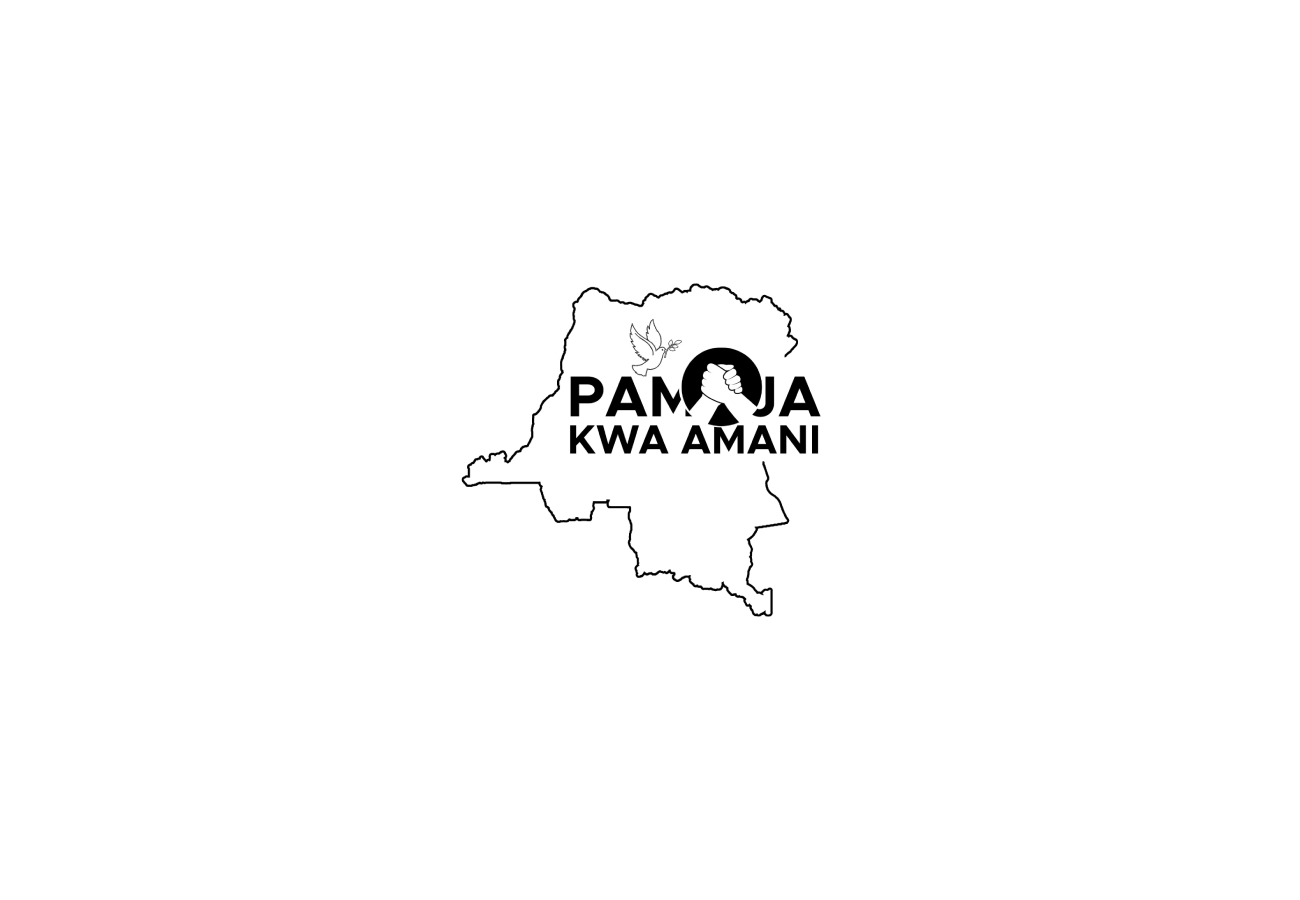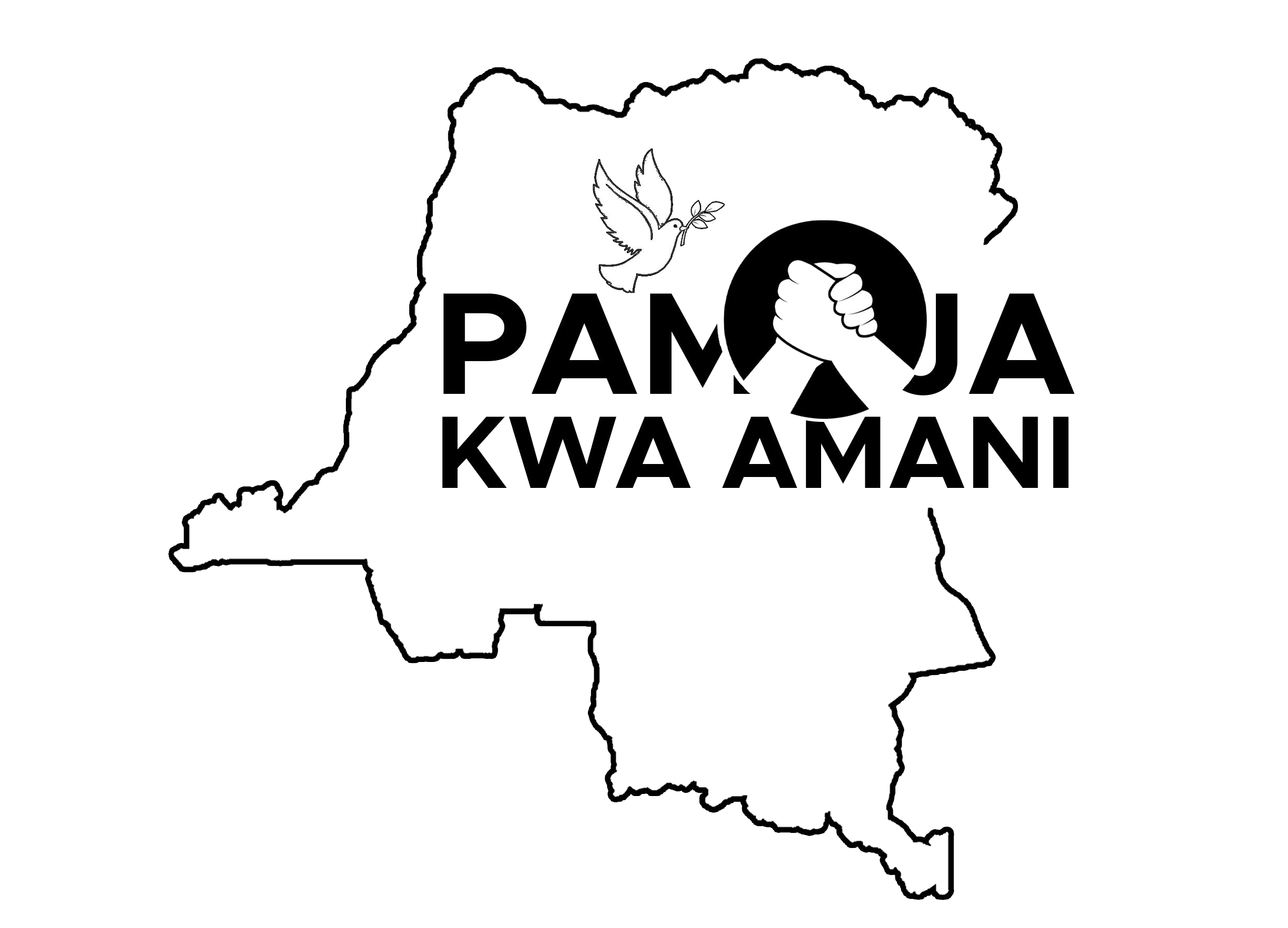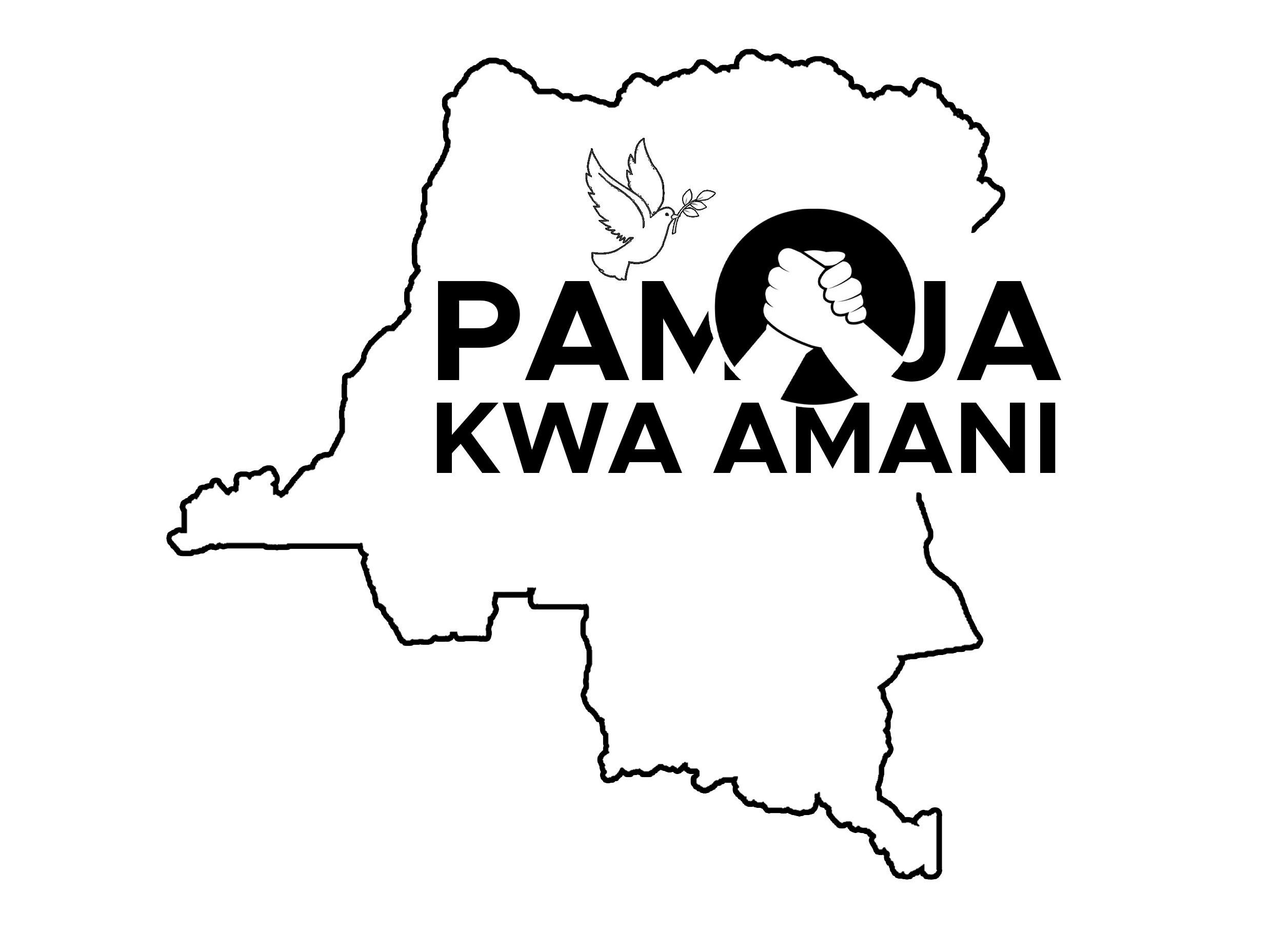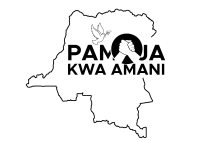Pamoja kwa Amani Consortium : Citizen Barometer No. 06, September 30, 2025
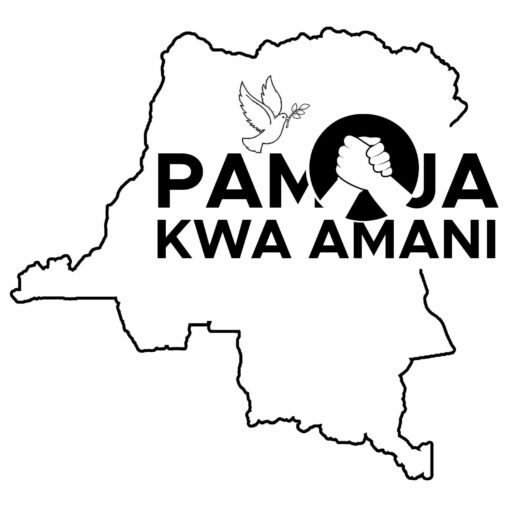
Pamoja kwa Amani Consortium
Citizen Barometer No. 06, September 30, 2025
While negotiations stall in Doha and Washington, the war rages on in South and North Kivu. Hostilities have escalated on all fronts, further exacerbating the humanitarian situation for the civilian population.
Three months later, no concrete results have been achieved…
From June 27 to September 27, 2025, exactly three months have passed since the peace agreement between Rwanda and the Democratic Republic of Congo was signed in Washington, DC. That evening at the White House, the ceremony was grand. President Donald Trump himself received the foreign ministers of the DRC and Rwanda who had just signed this historic agreement.
In the DRC, as throughout the sub-region, hope was high, and the dream of finally seeing peace return to the region, a prerequisite for its development, seemed to be becoming a reality.
But, alas, three months later, these hopes are fading. Three months later, the long-awaited meeting between the two heads of state, announced by Donald Trump himself, has never taken place and is unlikely to occur in the coming weeks.
At the same time, in Qatar, within the framework of the Doha process, the situation is also at a standstill. Negotiations between the DRC government and the AFC-M23 rebel group are stalled and are struggling to make any progress, despite the signing of the declaration of principles between the two parties on July 19.
Disappointment and despair: President Trump’s image suffers as a result…
Among Congolese public opinion, particularly in the local communities of the regions affected by the war in North and South Kivu, disappointment and skepticism are widespread.
People say they are disappointed and no longer expect anything from these two processes:
“Once again, they have promised us the moon and the stars.” The miracle we were hoping for from Washington and Doha will not happen. We thought that with President Trump, this war would finally end, but we see that he too has failed,” lamented a member of civil society in Bukavu, deeply disappointed and worried about the current situation on the ground.
This feeling of disappointment and despair can be seen on the faces of all Congolese people in the east, who have been severely affected by these repeated wars.
A resounding failure of Congolese diplomacy…
While the media touted the achievements and great diplomatic victories of the DRC, public opinion observes that there has been no positive impact on the ground, despite the unprecedented media coverage.
“How can we understand that the DRC President spent almost a week in Washington and returned without even having been received by his American counterpart?” wonders a communications advisor close to the Kinshasa regime, before calling on the president to change his team, which he deems ineffective and incapable of producing results.
The opportunity to capitalize on the diplomatic success represented by the unanimous adoption of UN Security Council Resolution 2773, which clearly recognized Rwanda’s role and responsibility and demanded the unconditional withdrawal of its troops, has been squandered. Instead of pursuing efforts to obtain concrete measures to implement the resolution, the Congolese side became even more bogged down, and to date, no satisfactory results have been achieved.
The Pamoja kwa Amani Consortium also notes with concern that the Congolese teams tasked with negotiating with Rwanda and the M23 are made up primarily of people who are unfamiliar with the intricacies and complexities of the conflict in eastern DRC. While Rwanda sends experienced delegates who are fully aware of the situation, our government prioritizes cronyism and profit-seeking (exorbitant travel expenses, 5-star hotels, luxury travel, etc.) when selecting its representatives. Logically, the country finds itself trapped by commitments that are impossible to fulfill, as was the case with the recognition of the existence of the FDLR and the pledge to neutralize them before Rwanda withdrew its forces.
This was a monumental mistake that gave Rwanda strong arguments and even absolved it of any responsibility as the aggressor.
Pamoja kwa Amani believes it is time to take matters seriously and set aside patronage and internal divisions when dealing with such crucial issues that affect the entire nation. If we want the world to respect us and respond to our struggles, our country must show that we are serious about addressing these challenges ourselves.
On the ground, it’s an all-out war…
Clashes are currently raging on all front lines, both in North Kivu in the Walikale, Masisi, and Lubero territories and in South Kivu in the Walungu, Mwenga, and Uvira territories. The fragile ceasefire has completely evaporated, and both sides are vying to maintain their territories and conquer more. And all means are being brought into play: heavy artillery, military aircraft and drones, armored vehicles, and more.
Each side is also strengthening its troops. This was seen with the AFC-M23, which organized ceremonies to conclude the training of more than 4,000 men, mainly from the ranks of the FARDC and the Congolese National Police, some of whom had surrendered and others who had been captured.
And like a resignation, the FARDC reacted by brandishing its brand new brigade, called « TIGRE, » which had also just completed its training and was ready for deployment on the battlefield. Both sides are thus strengthening their troops and weapons, suggesting that peace is very far from here.
The Fall of Nzibira, a worrying turning point in the war…
On Sunday, September 21, the AFC-M23 rebellion seized the town of Nzibira in Walungu Territory in South Kivu Province after intense fighting between the two sides. Nzibira is a highly strategic location, a crucial economic and military crossroads, located in the heart of an area rich in cassiterite and gold. Its loss is the result of concerted efforts to secure the region and provides the M23 with a new stronghold from which to extend its influence into new provinces, notably Maniema and even greater Kasai. From Nzibira, they can reach Maniema via Shabunda and Mwenga, and from Kasongo in Maniema, they can reach Kasai via Lubao and Mweneditu. This was the case when the AFDL troops used this route to seize greater Kasai and eventually reach Kinshasa by road in 1997. Analysts believe that the loss of Nzibira could trigger a rapid advance, threatening the national balance.
The fall of Nzibira is a significant setback for the government army, which had deployed sufficient forces and resources to prevent the rebels from extending their influence into other territories in South Kivu. Its loss is a severe blow that could greatly disrupt the Congolese government’s plans.
With this gain in a strategic capture and their intentions to conquer Mwenga and Shabunda, two territories extremely rich in minerals, the rebels are seeking new sources of revenue to finance their war and establish their parallel administration.
Meanwhile, civilians are caught in the crossfire and forced to flee, leaving everything behind. The resumption of hostilities is thus exacerbating the already rampant humanitarian crisis in the provinces of North and South Kivu. Civilians, including women, the elderly, and people with disabilities, find themselves exposed to the elements, without any humanitarian assistance.
The shrinking of civic space and human rights violations are rife in areas under AFC-M23 control.
The streets of Goma and Bukavu are now deserted every Saturday from 8:00 a.m. to 11:00 a.m. No traffic is allowed. Rebel authorities are toughening their stance on what they call « salongo » (community work) which they describe as cleaning up the city. In an audio message that has gone viral on social media, the AFC-M3 Governor of South Kivu, Mr. Patrick Busu Bwa Ngwi, can be heard giving firm instructions to the rank-and-file officials of the city of Bukavu, prohibiting all movement of people during salongo hours and stating that anyone caught would be put in trucks mobilized for this purpose and taken to the cells of their intelligence service (DSR) to « undergo moral correction/education. » This is rebel jargon, meaning to be subjected to beatings, torture, and other inhuman and degrading treatment.
Countless cases of summary arrests and detentions in dungeons are also reported daily in Pamoja kwa Amani, particularly in Bukavu and Goma. For various reasons, people are arrested, imprisoned, and subjected to severe torture. Some are killed, their families never seeing their bodies. Enforced disappearances and forced recruitment are also reported. With this widespread resumption of war, we have serious concerns and justified fears about the risk of an increase in the rate of forced recruitment of young people into various armed groups.
Regarding the shrinking civic space, it is noteworthy with concern that the latest measures announced by the provincial authorities of South Kivu now require all local, national, and international organizations to align their interventions with the AFC-M23 governance plan. Furthermore, organizations are now required to obtain clear authorization from the AFC-M23 before carrying out any action in areas under their control. These organizations must also submit narrative and financial reports for all their activities. This represents an example of the intense scrutiny of civil society organizations and even humanitarian organizations operating in AFC-M23 controlled areas. With these measures, the AFC-M23 authorities are endangering the lives and safety of many humanitarian actors who are called upon to intervene to alleviate, even a little, the suffering of the population severely affected by the war and ongoing humanitarian crisis.
Furthermore, the media, already heavily affected by the war situation, are being forced to pay new taxes. If they fail to do this, they are threatened with being shut down completely. In an economic environment where the media are struggling to operate due to a lack of advertisers and other technical financial support, subjecting them to heavy taxation would be tantamount to silencing the media, which are nevertheless essential for providing accurate and verified information to the population who, in the face of disinformation and misinformation on social networks, have the right to have access to accurate information.
Meanwhile, the rebellion continues its program to revive the judiciary. On September 14, a recruitment test was held in Goma for new magistrates to run the courts and tribunals in the M23-administered area.
In its Barometer Number 04 on September 1, 2025, Pamoja kwa Amani had warned of this situation, which greatly exposes citizens to the risk of injustice and even the death penalty. The High Council of the Judiciary had also protested this approach, which clearly violates the national sovereignty of the DRC.
According to the latest news, the AFC-M23 committee responsible for this matter will publish the results of this competition in the coming hours.
The Congolese government, through Guillaume Ngefa, Minister of Justice and Keeper of the Seals, has already announced the signing of an order annulling all judicial decisions made by the AFC/M23 leaders.
The « Wazalendo » Nebula
To counter the advance of Rwandan-backed rebels, the DRC government has resorted to local self-defense militias known as « wazalendo » (patriots). Since then, there has been a worrying proliferation of Wazalendo factions. There are currently several dozen Wazalendo factions scattered throughout the territories of North Kivu, South Kivu, and Maniema. Each of these groups has several self-proclaimed generals, more than 60 generals for these heterogeneous and disorganized groups.
In an attempt to bring some order, the Congolese government is attempting to channel all these factions into what is called the Reserve Army for the Defense of the Fatherland (RAD). In South Kivu, particularly in Uvira, a mission from this service was deployed to conduct a census of wazalendo groups and identify their members. However, the mission was halted due to a lack of resources.
Faced with a poorly organized structure, increasingly beyond the control of FARDC leadership, human rights violations are increasing by so-called « wazalendo » elements. They erect barriers in all the territories where they are present and extort money from the civilian population, who are then asked to pay various sums of money to pass through the barriers created by the wazalendo.
The control and management of the money extorted at these various barriers was the basis for violent clashes in central Mwenga on September 17-19 between two Wazalendo factions, one from the Nakiliba group and the other from the Malaika group. These clashes resulted in casualties not only among the ranks of the wazalendo, but also among the local population.
In addition to these harassments at the various barriers erected by the wazalendo, there are also regular reports of residents being tortured. The wazalendo do not hesitate to beat people, including women, with no respect for human dignity.
Children’s rights, particularly the right to education, are also seriously threatened in certain areas where some misguided wazalendo elements violently attack students and teachers, going so far as to violently chase away students, including those under the age of 10, and order parents to stop sending their children to school. This behavior violates children’s rights and exposes them to serious psychological trauma.
Pamoja kwa Amani strongly condemns these barbaric acts and calls on the various wazalendo factions to properly control their troops. The Congolese government and FARDC leadership are also urged to address these serious violations as a top priority, otherwise the wazalendo risk become a network of armed troops that cannot be controlled that could plunge the country into a more difficult situation than it is now. It is therefore time to take a clear look at things before the situation spirals completely out of control.
News from Pamoja kwa Amani and its partners
Since September 16, 2025, Pamoja kwa Amani has officially been a member of the International Peace Bureau (IPB), an international organization working for peace throughout the world.
With this membership, Pamoja kwa Amani hopes to make the honest views of local communities in eastern DRC heard as widely as possible regarding peace—an inclusive and lasting peace that they eagerly await.
Advocacy meetings between U.S. policymakers and Congolese civil society, represented by a strong civil society Cohort established by the U.S.-based organization PAEMA, began on September 30. After three months of civic and capacity building training, the six members of the Cohort are now prepared for meetings with U.S.-based stakeholders to make the voices of Congolese communities heard in connection with the various peace processes currently underway.
It should be noted that two Pamoja kwa Amani facilitators, Mr. Jean Chrysostome Kijana and Ms. Néné Bintu, respectively Moderator and Deputy Moderator of PKA, are part of the Cohort established by PAEMA and actively participate in the ongoing program.
Pamoja kwa Amani also met with a delegation from the Belgian organization 11.11.11 to review the situation in eastern DRC and explore opportunities for collaboration between the two organizations.
Pamoja kwa Amani has just entered into a partnership with the Burundian Coalition for Peace (COPA Burundi), a major Burundian civil society platform with extensive experience in peacebuilding in Burundi and the Great Lakes region. As part of this partnership, several activities are planned, the first of which will be a conference bringing together civil society actors from the Great Lakes sub-region from Rwanda, Burundi, and the DRC to conduct a contextual analysis of the conflicts in the sub-region and develop a joint advocacy roadmap with the sub-region’s political decision-makers to achieve lasting and inclusive peace in our three countries. We will share more details on these efforts in our upcoming issues.
Produced and directed by the Pamoja kwa Amani Consortium (C-PKA), the Citizen Barometer on Peace and Security in the DRC is intended to be an important tool in the search for and building of peace in the DRC. Like the rooster that crows every morning in our villages, the PKA Citizen Barometer aims to be a « whistleblower » that seeks to speak out about what is happening on the ground and what constitutes threats and attacks on peace and security, as well as serious human rights violations. It is also intended as a means of advocacy and information for a wide range of audiences at the local, national, and international levels. The Pamoja kwa Amani Consortium is a broad group of some twenty civil society organizations in North and South Kivu working for peace, justice, community recovery, and harmonious coexistence[1].
Through the community network of its member organizations, PKA-C aims to make its Citizen Barometer a tool for monitoring human rights violations and all threats to peace and security. To better accomplish this mission, Pamoja kwa Amani is appealing to any organization interested in this approach for support for its Citizen Barometer. Please contact us by email: [email protected]
Together, let’s build peace!
Pamoja Tujenge Amani!
Pamoja kwa Amani Consortium
Association of civil society organizations from the eastern Democratic Republic of Congo
+243998893542
[1] Member organisations of C-PKA : Action Kesho Congo, Action pour le Bien-être de la femme et de l’enfant au Congo, ABFEC – Action Congo asbl ; Action Solidaire pour le Développement Endogène et la Paix, ASODEP ; Amani na Tumaini Kwetu, ATK, asbl, Association des Femmes des Médias, AFEM ; Célébrons le Courage de la Femme, CCF ; Collectif des Organisations des Jeunes Solidaires du Congo Kinshasa, COJESKI ; Collectif Simama Congo, COSIC ; Collectif 2250 (regroupement d’organisations des jeunes) ; Congo Handicap, CH ; Initiative pour l’Avenir Meilleur, INAM asbl (Association de promotion et la défense des droits des Personnes en situation de handicap) ; La prunelle RDC ; Mama Radio Fm; Nouvelle Dynamique de la Société Civile, NDSCI ; Radio Maendeleo ; Réseau des Associations Congolaises des Jeunes, RACOJ ; Sante, Environnement et Bien-être pour Tous, SEBE-T ; Société Civile Forces Vives – Bureau de Coordination du Sud-Kivu, BCSC – FV ; Solidarité pour la Promotion des Femmes et Familles Indigentes, SOPFFI ; Solidarité pour le Développement et l’émergence des Communautés Pacifiques, SODECOP ; Solidarity of Women for integral development, SWID.
